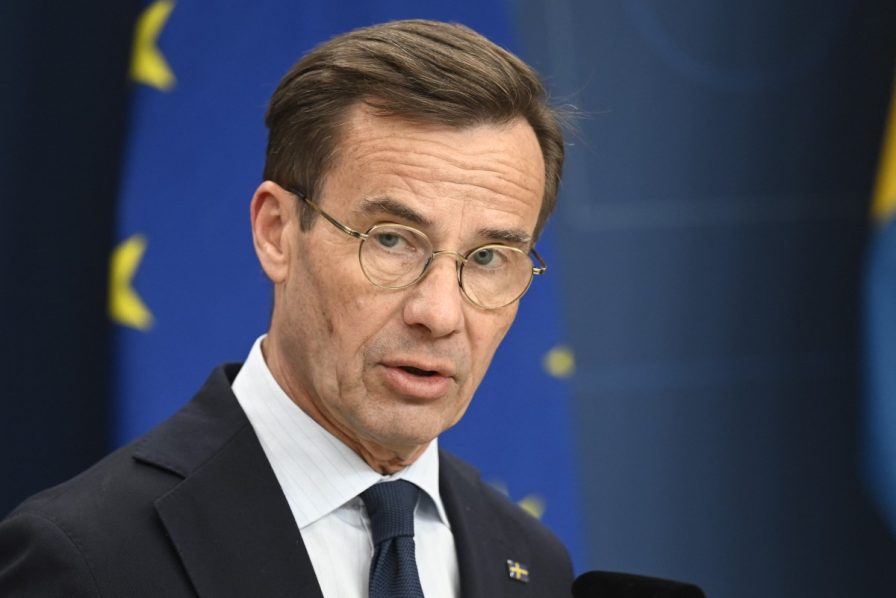
Sweden has previously demonstrated that major emission reductions and increased growth are not mutually exclusive. Since 1990, we have reduced our emissions by 37% while growth has increased by 92%. More countries need to make the journey that we have made, write representatives of the Government.
UN climate negotiations have begun during COP28. Countries have gathered to agree on joint commitments to achieve the climate transition and tackle the consequences of increasingly critical climate change. Sweden and the EU have made themselves clear: not only is it possible to combine ambitious climate objectives with growth and prosperity, it is necessary.
COP28 is an important conference that places great demands on all participants – governments, businesses and environmental organisations. Time is of the essence – we need to step up the pace of the climate transition. Climate change is global and one of the most critical issues of our time. At this critical stage, we must take action if we are to succeed. At the same time, the opportunities are great. Sweden has previously demonstrated that major emission reductions and increased growth are not mutually exclusive.
More countries need to make the journey that we have made. Since 1990, we have reduced our emissions by 37%, and growth has increased by 92%. We will now continue our efforts to realise net-zero emissions by 2045 through electrification of the industrial and transport sectors, new green innovations and revamping the energy system using completely new Swedish nuclear energy.
The Swedish business sector has great potential to contribute goods and services that will also speed up the climate transition in our export markets. At the same time, many countries need to develop – and commit to – roadmaps to become fully climateneutral. COP28 provides an excellent opportunity to do this. Key issues will be discussed during the conference, and the Swedish Government will fight for several of them:
- Phasing out fossil fuels. Many countries outside the EU must raise their level of ambition to stop using fossil fuels. Today, Sweden’s electricity production is basically fossil-free and we will now continue to expand the electricity system through extensive expansion of the base load. Otherwise, we will not achieve the climate transition.
- As climate change leads to increasingly devastating consequences, countries need to increase their climate adaptation efforts. Countries need to be much better prepared for torrential rain, flooding, drought, heatwaves and forest fires.
- Financial institutions must contribute to the climate transition. Sweden and the EU have good experience of banks, pension providers and insurance companies changing their business models and investments from fossil-focused to fossil-free. This needs to become a global movement, and we will share these experiences in the negotiations over the coming weeks.
- Raising the level of ambition in global climate action. The EU has set an example for other continents through its new climate legislation – Fit for 55 – which we finalised during the Swedish Presidency of the Council of the EU. Using clear objectives and tough requirements, 450 million Europeans will now jointly reduce their emissions by a minimum of 55% by 2030. The EU will become the world’s first climate-neutral continent by 2050. In Sweden, we have set more ambitious climate objectives than that – we will achieve net-zero emissions by 2045, 5 years before the rest of the EU. Using EU regulations, we have measures in place to reduce the EU’s emissions to ensure that we do our part in achieving the 1.5- degree Celsius goal. More countries need to adopt regulations that are as forceful as the EU’s. And many of us need to do more to achieve the climate transition with prosperity and social acceptance. This requires good conditions for the businesses that have to make the transition.
- Ambitious climate objectives must apply to all G20 countries, which are responsible for 80% of total global emissions. Last week, the United States and China agreed on several aspects that may contribute to a positive outcome of COP28. This is very welcome, but more countries need to raise their level of ambition.
- The Government will implement the climate transition with broad popular support. The transition will increase our freedom, not limit our daily lives. The most crucial aspect is to shift our societies from fossil-dependent to fossil-free. Through climate initiatives with other countries – such as LeadIT together with India, or the First Movers Coalition – we are demonstrating that this involves climate-neutral infrastructure, fossil-free electricity production and rapid electrification, particularly in the industrial and transport sectors. The aim is not just to reduce emissions in the short term, but to erase them entirely.
COP28 will especially focus on the global review of the Paris Agreement – the first time since 2015 – and will follow up how countries are living up to their commitments in concrete terms. Now, all countries need to live up to what they have already agreed to do and what needs to be done.
This opinion piece is written by Prime Minister Ulf Kristersson, Minister for Energy, Business and Industry Ebba Busch, Minister for Climate and the Environment Romina Pourmokhtari and Minister for International Development Cooperation and Foreign Trade Johan Forssell.






